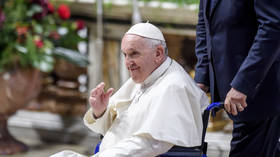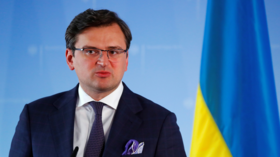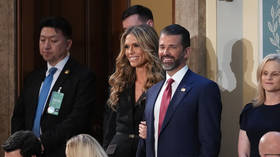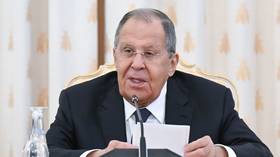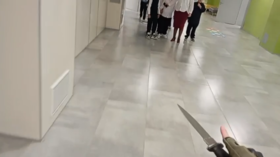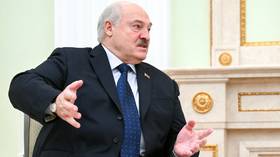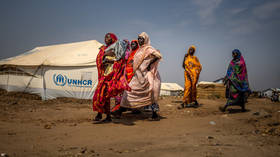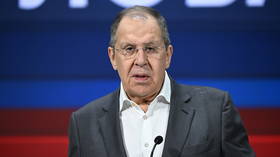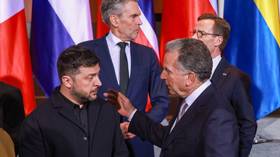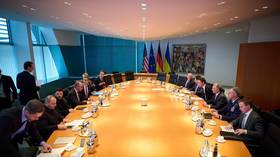Russia warns of ‘tougher’ terms for talks with Ukraine
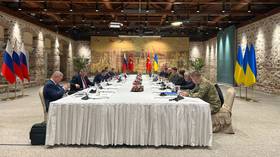
Moscow will make much harsher demands if and when talks on a peaceful settlement of the Ukraine conflict resume, Leonid Slutsky, a member of Moscow's negotiating team, has warned.
“Today, the conditions on our part will be tougher regarding demilitarization and ‘denazification’; tougher both in terms of essence and the timeframe of their implementation,” Slutsky, who leads the Liberal Democratic Party (LDPR) in the Russian State Duma, said during a press conference on Tuesday.
However, the parliamentarian pointed out that currently “Kiev doesn’t show any eagerness to resume the negotiations.”
On Monday, Russian presidential aide Yury Ushakov also addressed the possibility of the resumption of talks with Ukraine, saying that Russia’s demands would be “different” if the two sides sit down at the negotiating table now.
However, much like Slutsky, he had to acknowledge that “for now, there’s no interest in this from both Kiev and the Western countries” that are backing Ukraine in the conflict.
The peace process had been put on hold by the Ukrainian side after the latest round of negotiations, which took place in Istanbul in late March, according to the aide. “After that, the Ukrainian delegation didn’t maintain any contact with us,” Ushakov said.
Moscow had initially been optimistic about the outcome of the talks in Turkey’s largest city, but later accused Kiev of backtracking on all the progress that had been achieved there and declared that it had lost all trust in the Ukrainian negotiators.
In his interview with Forbes on Monday, Ukrainian Foreign Minister Dmitry Kuleba insisted that Kiev would only be eager to resume talks after Moscow suffers “defeat on the battlefield.”
“Otherwise, it will be the language of ultimatums again” on the part of Russia, he explained.
According to Kuleba, Ukrainian President Vladimir Zelensky doesn’t rule out “the possibility of negotiations,” but believes “there is no reason” for it at the moment.
Despite Russian forces steadily gaining ground in Donbass, Ukraine’s top negotiator David Arakhamia suggested last month that Kiev could achieve a “favorable position” on the front by late August after it conducts “counteroffensive operations in certain areas.”
Russia sent troops into Ukraine on February 24, citing Kiev’s failure to implement the Minsk agreements, designed to give the regions of Donetsk and Lugansk special status within the Ukrainian state. The protocols, brokered by Germany and France, were first signed in 2014. Former Ukrainian President Pyotr Poroshenko has since admitted that Kiev’s main goal was to use the ceasefire to buy time and “create powerful armed forces.”
In February 2022, the Kremlin recognized the Donbass republics as independent states and demanded that Ukraine officially declare itself a neutral country that will never join any Western military bloc. Kiev insists the Russian offensive was completely unprovoked.


